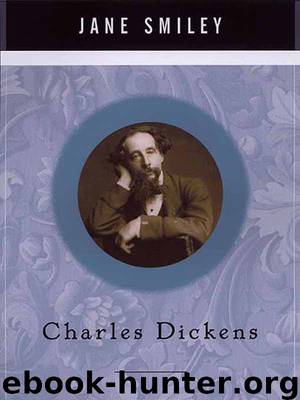Charles Dickens by Jane Smiley

Author:Jane Smiley
Language: eng
Format: epub
Publisher: Penguin Group US
In January 1854, some six months after the completion of Bleak House, Dickens realized that the sales of Household Words had fallen precipitously. Bradbury and Evans asked him to compose another serial novel, and he at once began Hard Times. The first number appeared on April 1. The immediate inspiration for this shortest of Dickens’s novels seems to have been a twenty-three-week-old millworkers’ strike in Preston, where Dickens traveled for a look; he then wrote a long piece about the strike for Household Words at the beginning of February. Dickens had a long-standing interest in working conditions and workers’ protests—he had, of course, touched on lower-class unrest in Barnaby Rudge and had intended to write about factories in Nicholas Nickleby. He set out his principles clearly in his essay: “that into the relations between employers and employed, as into all the relations in this life, there must enter something of feeling and sentiment; something of mutual explanation, forbearance, and consideration . . . otherwise those relations are wrong and rotten to the core and will never bear sound fruit.” His general view of a just society as one marked by the recognition of the dignity and worth of every individual continued to express itself with regard to what seemed to be the purest economic issue, and indeed, the opinion he quotes in his essay from a Preston workers’ bill, that the employers “in times of good trade and general prosperity, wrung from their labour a California of gold, which is now being used to crush those who created it,” would in our century be read as an expression of the standard Marxist labor theory of value. Dickens’s further remarks show that he did not understand this but saw the issue entirely as a matter of relationship. And, indeed, when he novelizes his ideas in Hard Times, he can make of them only a depiction of a series of failed relationships between individuals. Mr. Bounderby and Mr. Gradgrind, mill owner and educator, both fail in their responsibilities to their workers, wives, children, and students. They abuse their power, not out of intentional unkindness or natural evil, but out of ideology and ignorance. Those they are supposed to direct, and who turn to them for guidance, receive pat ideas, egocentric bluster, or dry theory. Tom Gradgrind and Louisa are provided with no moral compass or method for understanding their feelings. Stephen Blackpool is reduced step by step to hopelessness and drudgery. The overarching symbol for all of this is the pall of ugliness, smoke, and pollution cast over Coketown by the factories at the heart of the city.
Dickens was not Marx or Engels. Though he was perhaps as outraged as they were at conditions around him, he was by nature a novelist, not a philosopher or a political economist or a revolutionary. Novels privilege the idiosyncrasies of individuals and can demonstrate larger ideas only by having characters work them out through action and contemplation. The narrator may attempt to extrapolate the ideas
Download
This site does not store any files on its server. We only index and link to content provided by other sites. Please contact the content providers to delete copyright contents if any and email us, we'll remove relevant links or contents immediately.
| Actors & Entertainers | Artists, Architects & Photographers |
| Authors | Composers & Musicians |
| Dancers | Movie Directors |
| Television Performers | Theatre |
Cecilia; Or, Memoirs of an Heiress — Volume 2 by Fanny Burney(31956)
Cecilia; Or, Memoirs of an Heiress — Volume 3 by Fanny Burney(31942)
Fanny Burney by Claire Harman(26603)
We're Going to Need More Wine by Gabrielle Union(19046)
Plagued by Fire by Paul Hendrickson(17413)
All the Missing Girls by Megan Miranda(16029)
Cat's cradle by Kurt Vonnegut(15356)
For the Love of Europe by Rick Steves(14121)
Bombshells: Glamour Girls of a Lifetime by Sullivan Steve(14076)
Leonardo da Vinci by Walter Isaacson(13336)
4 3 2 1: A Novel by Paul Auster(12393)
The remains of the day by Kazuo Ishiguro(8999)
Adultolescence by Gabbie Hanna(8927)
Note to Self by Connor Franta(7671)
Diary of a Player by Brad Paisley(7581)
Giovanni's Room by James Baldwin(7346)
What Does This Button Do? by Bruce Dickinson(6207)
Ego Is the Enemy by Ryan Holiday(5450)
Born a Crime by Trevor Noah(5382)
